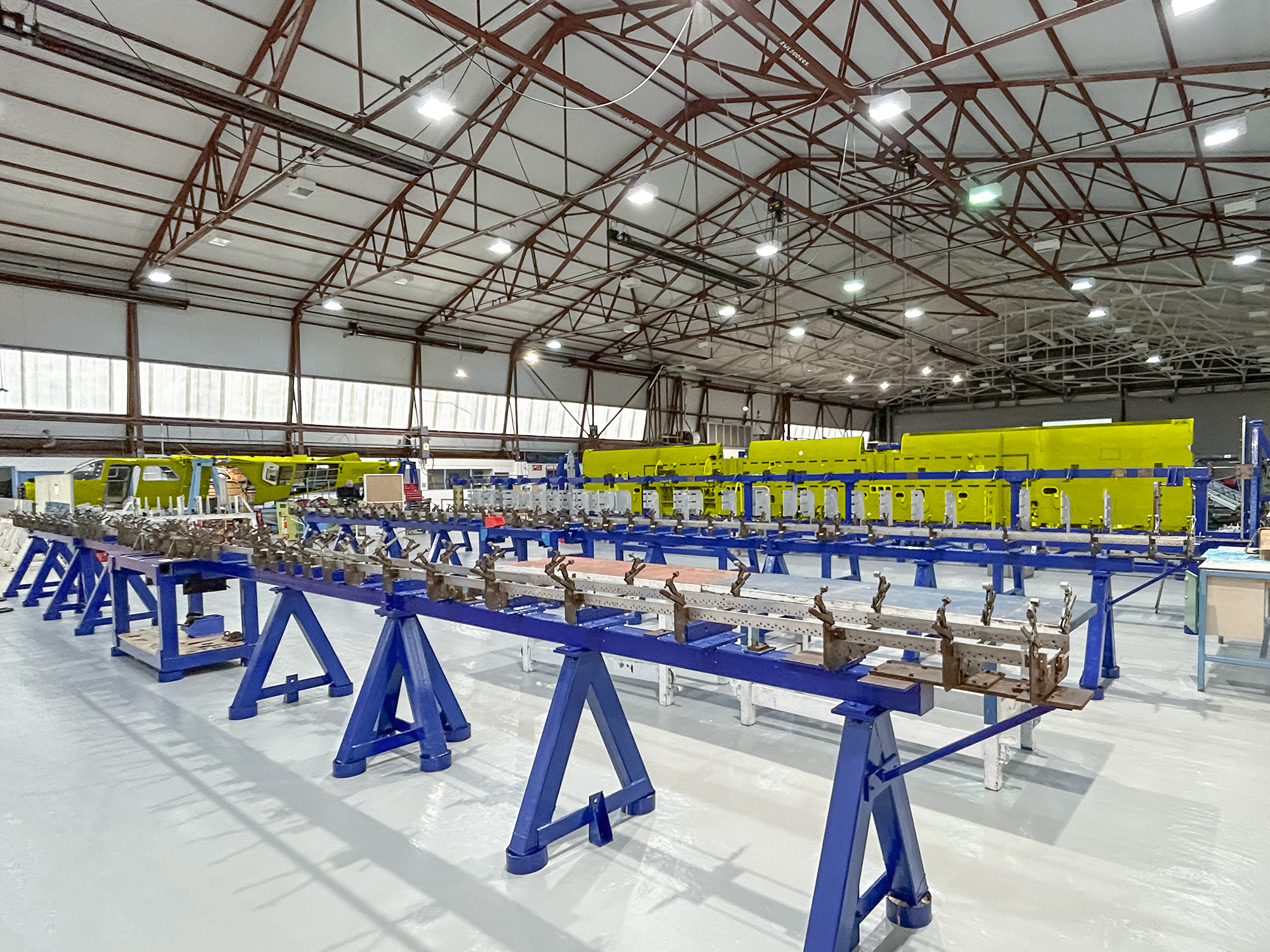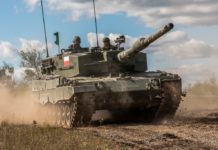UK aircraft manufacturer Britten-Norman has recently announced that it is to repatriate aircraft production to its historic home in Bembridge on the UK’s Isle of Wight.
Although the company operates a final assembly line and refurbishment centre at Solent Airport Daedalus in Fareham, on the UK mainland just north of the Isle of Wight, it has conducted its aircraft manufacturing in Romania since the late 1960s.
Britten-Norman, which is currently in the process of a proposed merger with Cranfield Aerospace Solutions, is investing in new jigs and tooling at Bembridge to create two additional production lines as well as modernising production and decarbonising the site with new sustainable energy initiatives.
The company is known for its production of the Islander twin-engine light utility aircraft, but also offers a military variant, the Defender, that can act as a platform for military intelligence, counter-terrorism, surveillance, reconnaissance, maritime patrol and special missions.
The new investment at Bembridge is in preparation for the planned launch of a zero-emissions Islander in 2026, as well as wider interest that has resulted from the introduction of finance and leasing options for the resurgent subregional aircraft market.
Asked by ESD to expand upon this, the Britten Norman senior leadership responded on 13 June 2023 by stating, “Britten-Norman’s strategy over the past two decades has been to achieve fleet sustainment by offering bespoke manufacturing in low volumes and this has been generally well supported through existing supply chain and within the current manufacturing process.

“As the world moves to reduce carbon emissions in the drive for Net Zero, aviation will need to play its part. As a short-sector aircraft providing life-line services to remote communities in ecologically sensitive areas, the Islander is perfectly positioned to play a leading part in aviation’s early transition to carbon-free flight. Britten-Norman and Cranfield Aerospace Solutions have been working to create a hydrogen-powered demonstrator aircraft which, since our recently announced intended merger, will become the first factory-new hydrogen propulsion aircraft to enter the market.”
Britten-Norman stated that the newly merged business “will continue to support the conventional market with single-digit projections for new aircraft. The significant ramp-up in production will be to support projected sales of hydrogen-powered aircraft, where manufacturing volumes are expected to reach one new aircraft every 10 days by 2029.”
Asked if its production activities would continue in Eastern Europe, the leadership team replied, “We have a longstanding supply agreement in Romania that may still form part of our future supply strategy along with a broad range of other international key suppliers. However, the primary focus will be on UK manufacturing from our Isle of Wight facility, supported by the UK supply chain.”
The company noted that over the last decade it has invested GPB 20 M (EUR 23.35 M) into the local area around The Solent and is forecasting an additional GBP 70 M of investment across the wider business in the two years following its merger with Cranfield Aerospace Solutions.
Meanwhile, Britten-Norman is embarking on a recruitment drive. “In the coming months the company will be embarking on a recruitment campaign, further boosting job creation in the UK’s Solent Local Enterprise Partnership area,” the company stated in a press release. “The focus will include aircraft fitters and technicians, production engineering and supply chain roles. The expansion will also create new traineeship and apprenticeship opportunities on the Isle of Wight and in South Hampshire.”
Chief Executive William Hynett was quoted as saying of the company’s future plans, “The project is a great success story for the British aircraft manufacturing industry. I am very proud to be involved in this next chapter at Britten-Norman.”
Peter Felstead





